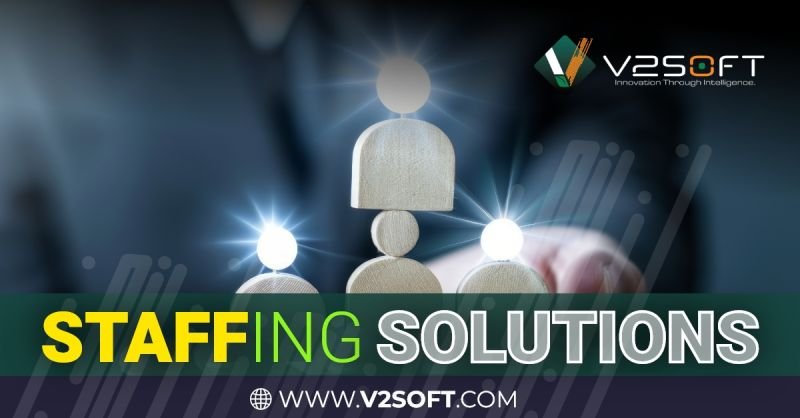7 Powerful Ways IT Staffing Contracts Empower Recruitment for Success
The digital world is dynamic; organisations are continually under stress to be very competitive and responsive to technological trends in the global environment, and an essential factor to this demand is securing the correct talent, more so in information technology. IT staffing contracts have become a major lever for companies that intend to complement the gap between workforce requirements and talent pools. This is what makes this method vital in enabling staffing, where companies effectively meet the realization of their technology goals but remain agile.
What Is an IT Staffing Contract?
A staffing contract, representing a form of agreement between an enterprise and the IT staffing service provider, describes conditions and terms under which the provider will deliver IT people that will serve a particular set of project needs or general duties for a more significant period. Among its advantages is the ability for companies to dynamically manage the most critical resources in their organizations-their workforces-and scale teams up or down in response to changing project demands without getting locked into traditional hiring structures.
This is advantageous, especially for the tech industry because it involves IT staffing contracts and is fairly useful because of its flexibility. Projects in the industry may have fluctuating demands, and certain skills may only be needed for a short duration.
Types of IT Staffing Contracts
IT Staffing contracts come in different forms and are appropriate for various recruitment needs.
Temporary or Contract Staffing: In this model, the organizations will hire IT professionals either on a temporary basis to work on particular projects or just to meet the short-term requirements of the organization. Ideally, it is used for the management of seasonal peaks or project-based workloads or for that matter, the requirements of a few skills requiring specialized expertise for a short period.
Hybrid model, where businesses can evaluate an IT professional’s fit in an organization before making a long-term offer for employment. Here the candidate is first hired as a contractor. There is the possibility of conversion into permanent employment after a specific period with regard to performance.
Direct Hire Staffing: Not quite a contract, technically, even direct hire contracts from an IT staffing provider serve to allow for the acquisition of full-time employees. They source and screen candidates but the employing company directly hires the worker.
Managed Services Staffing: In this model, the staffing firm becomes the manager who is responsible for the delivery of a function of an organization’s IT; an example of such a function might be security and cloud services. Under an agreed contract, the staffing company provides the workforce necessary for the continued smooth running of IT functions within the company.
Why IT Staffing Contracts Are Essential for Empowering Recruitment Flexibility in Workforce Management
IT staffing contracts also afford valuable flexibility in the management of the workforce. The organizations are no longer bound to a fixed hiring practice or long-term employment commitments. Instead, the organizations can hire an expert for one project or a particular period. It effectively empowers recruitment efforts in such a way that the company can immediately respond to the increasing demands.
For instance, in fast-growth phases or in situations when an essential IT project needs to be delivered, organizations can hire contract staff as a requirement for the needed expertise, thereby not having permanent employees. This is helpful in controlling costs and optimizing resources, as unnecessary overstaffing of employees can be avoided at slow periods.
Availability of Expertise
The top challenge in recruiting for IT staff is skills – cloud computing, cybersecurity, or artificial intelligence. These skills are high in demand and low in supply. With an IT staffing contract, companies gain access to pools of talent that they might not reach otherwise, including highly specialized professionals who only provide their skills on a contractual basis.
The access to specialized talent will allow a business to meet their technical requirements without having to take months and months within the recruitment process. Further, it empowers the recruitment teams by increasing their options and removing pressure on hiring full-time employees for niche areas.
Time-to-Hire
In the high-technology sector, the delay in getting the right talent through hiring leads to the loss of opportunities or a setback in the projects. The hectic nature of the recruitment process that uses such traditional methods, which often take long periods of interviewing and negotiating through, slows down the thrust of critical business initiatives.
However, the recruitment cycle is accelerated with IT staffing contracts. With a pre-vetted pool of candidates available to fill a certain role, staffing providers can get organizations up and running quickly. This empowers recruitment by diminishing time-to-hire, thereby enabling organizations to abide by the deadlines related to their projects and the overall business objectives.
Reduced Recruitment Costs
Hiring full-time employees is costly, mainly due to their salaries, benefits, training, and overheads. For IT staffing contracts, companies can retain better control over those costs. From a business viewpoint, it only buys what it needs as needed instead of paying unnecessary costs of maintaining a large workforce of full-time employees.
Much of the recruitment process, that is, candidate sourcing up till interviews, is taken care of by the staffing provider, and therefore the amount of effort that needs to be done internally by the company’s HR and IT teams is reduced. This cost-saving way equips the recruitment teams to free up resources that are then channeled to other strategic initiatives.
Scalability for Big Deals
Many IT projects are defined by infrastructure upgrades, software development, or cybersecurity initiatives that require large teams for a finite time period. Staffing contracts provide the scale needed to meet this requirement. Companies can ramp up a large team of IT professionals to execute a major project and ramp down again once it’s done.
This makes IT staffing contracts an excellent resource for companies that undertake relatively complex or massive IT projects. This also allows recruitment to work with certain project requirements in an elastic manner without the burden of long-term employment that comes with it.
Empowering Recruitment through IT Staffing Contracts
Apart from malleability and improved access to expertise talent, IT staffing contracts also have the power of providing a structure to facilitate recruitment in a way that encourages a more strategic approach to hiring.
Strategic Talent Acquisition
The staffing providers enable firms to take a strategic approach to recruitment. Organizations are no longer limited to firefighting shortages or sudden demands; rather, the talent acquisition needs are foreseen through the project pipelines and future requirements. It allows the more predictive anticipation of staffing needs while ensuring a consistent flow of talent.
Talent Pool Diversification
Providers of human resources often have large networks and resources, from which companies can tap into a diverse talent pool. This would avail companies with the widest potential candidate range and those with diverse skill, background, and experience profiles. Such a diverse talent pool not only fosters innovation within the organization but also makes sure that recruitment efforts are quite inclusive and up to par with industry standards.
Core Business Functions Focus
Recruiting, onboarding and training new employees is a laborious and diverting activity for businesses. IT staffing contracts can be an efficient way of outsourcing all these myriad tasks to more specialized providers while freeing recruitment teams to focus on strategic HR initiatives that add value for the company by having the talent it needs.
Conclusion
In conclusion, IT staffing contracts hold the power for an increased flexibility and reduced time-to-hire in giving the ability to focus on specialized talent. The winning competitive edge will be more in today’s business environment as companies rely on technology as a primary driver of growth and innovation. Actually, it is in the best interest of companies to utilize IT staffing contracts because they can work a good recruitment strategy into their business goals to ensure that the right people are in place to face the digital challenges of today.






